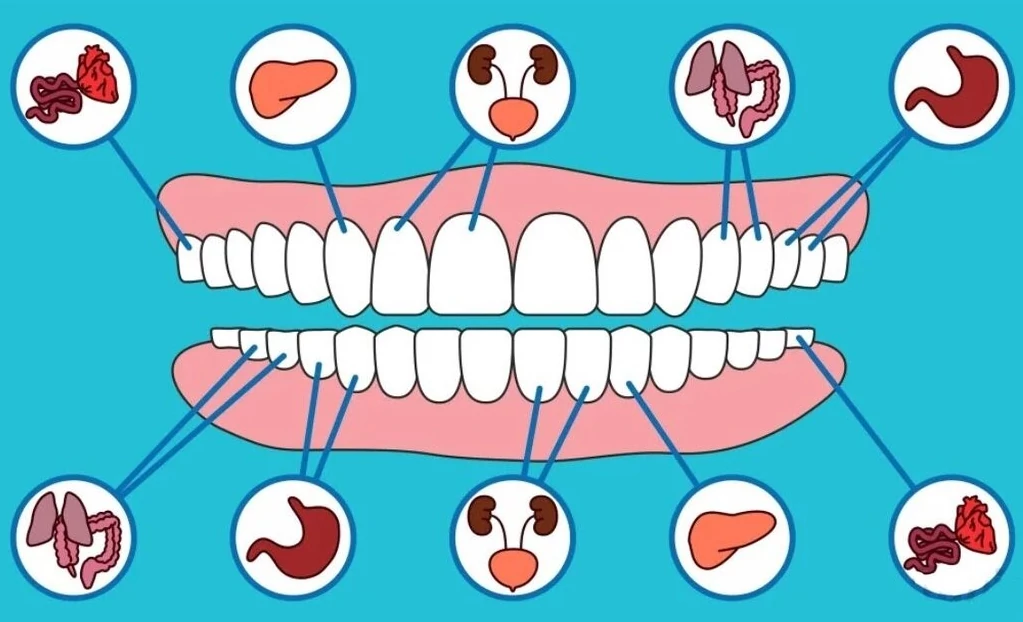The Relation Between Oral Health and Overall Health
It may be interesting to learn that oral and dental hygiene is more vital than you think, highlighting the relation between oral health and overall health. Some gum illnesses can cause various types of cancer, including oral cancer, and even mortality; naturally, this percentage is larger among men due to factors such as smoking, poor diet, and so on. According to studies, males with a history of gum disease are 14% more likely to develop cancer than men who have not been diagnosed with the disease.
Given the significance of the topic, we decided to include several diseases caused by poor oral and dental hygiene in this post, further emphasizing the relation between oral health and overall health. This article has been brought to you by the dedicated team at SmilePlus Dental Clinic, dental clinic in Surrey. We provide a wide range of dentistry treatments near you in Surrey, from preventive to restorative and cosmetic dentistry such as teeth whitening and invisalign. Stay with us throughout this article.
Oral health and cardiovascular disease
There is a complicated and nuanced association between cardiovascular disease and dental health. Research indicates that persons with poor dental health—such as those with gum disease or tooth loss—have greater incidences of cardiovascular issues, such as heart attacks and strokes, than people with good oral health. Although there isn’t a clear link, there are shared risk factors and mechanisms involved.
The bloodstream’s role in the transfer of oral germs to other body areas is one important method. Gingivitis and periodontitis are caused by bacteria that infect the gums and spread to other blood vessels in the body, causing inflammation and damage. This inflammation has the ability to trigger a series of vascular injuries to many parts of the body, including the brain and heart, which may result in diseases like stroke and heart attack. This theory is supported by the finding that remains of oral bacteria can be found in atherosclerotic blood vessels.
One theory links the issue to atherosclerosis, often known as atherosclerotic blood vessels. This condition is defined by the build-up of plaque within the arteries, which is a substance containing cholesterol, fat, calcium, and other components. Atherosclerosis develops when these substances accumulate in the walls of the arteries, leading to a narrowing of the arteries’ interior. This narrowing reduces the supply of oxygen-rich blood to the tissues of vital organs in the body, potentially causing serious health problems.
Another aspect of the connection is the role of inflammation. One of the main factors contributing to the development of cardiovascular disease is systemic inflammation, which is brought on by the body’s immunological reaction to oral bacteria. Blood vessels may be impacted by this inflammation, raising the possibility of atherosclerosis and other cardiovascular diseases.
Oral health and dementia
There is a complicated and nuanced association between dementia and dental health. According to research, there is a link between poor oral health—which includes diseases like gum disease, dental caries and tooth loss—and a higher chance of dementia and cognitive decline. This correlation is most noticeable in those with severe dementia. Although the exact processes underlying this association are unknown, systemic inflammation—which is linked to dementia and dental diseases—is thought to be a major contributing factor. Additional research is required to completely comprehend the nature of this link and its ramifications, as this field of study is continually evolving.
Oral health and diabetes
Diabetes and dental health have a substantial and mutual association. Diabetes can cause a number of issues with dental health, and vice versa. Poor oral health can make managing diabetes more difficult. Studies reveal that periodontitis affects around 22% of diabetics. It may be more difficult to control diabetes if you have periodontal disease.
Diabetes-related high blood sugar levels may reduce the body’s defenses against infections, particularly oral infections. An increased risk of tooth decay, gum disease, and other oral diseases may result from this. Moreover, fungal infections such as thrush and dry mouth are additional complications of diabetes that can exacerbate oral health issues. However, gum disease can exacerbate blood sugar regulation, leading to a vicious cycle that, if left unchecked, might worsen both illnesses.
For this reason, keeping healthy tooth and oral health is crucial for diabetics to avoid the consequences of their condition.
Oral health and cancer
There is a complicated and multidimensional link between oral health and cancer, and new research has shown that oral health may influence oral cancer risk. Studies have indicated a possible link between periodontal disease and a higher risk of several malignancies, especially those of the head and neck region. Numerous cohort studies (Kind of observational research in which a set of people with a similar feature (such age or exposure to a certain factor) are monitored over time in order to measure health outcomes or the incidence of a disease) have found evidence for this correlation, though the findings have been mixed, with some indicating a weak connection and others suggesting a greater one, particularly in cases with severe periodontitis.
Furthermore, although the precise mechanisms underlying this link remain unclear, it is thought that certain oral bacteria and chronic inflammation may play a role in the development of cancer. For instance, the bacterium Fusobacterium nucleatum has been implicated in promoting the growth of colorectal cancer in animal models, suggesting a potential role in carcinogenesis. Furthermore, it is imperative that cancer patients who are receiving treatment maintain good dental health because poor oral health can increase adverse effects from treatment and could cause issues with cancer medicines.
Oral health and kidney diseases
There is a strong and reciprocal link between kidney disease and dental health. In addition to kidney disease being a cause of oral health difficulties, poor oral health, specifically gum disease and dental cavities, can worsen renal disease. The main cause of this association is the systemic inflammation brought on by dental infections, which aggravate kidney disease by triggering an inflammatory response in the body. Furthermore, immune system weakness is a common feature of kidney disease patients, rendering them more vulnerable to infections, particularly oral ones.
Oral health and Respiratory infections
There is a strong correlation between respiratory diseases and dental health, which has been well studied. Because oral germs have the ability to penetrate the respiratory system, poor oral hygiene and periodontal disease can aggravate respiratory disorders. Aspiration or inhalation can cause this, which can result in illnesses like pneumonia or bronchitis. When oral bacteria are not controlled by practicing good dental hygiene, they might grow and perhaps cause damage when they enter the lungs. Additionally, respiratory infections are more common in smokers, the elderly, and those with underlying medical conditions. It is therefore recommended that these individuals take their dental exams seriously.
Prevention
The following practices are the best ways to prevent diseases brought on by poor oral hygiene:
- Brush your teeth and gums at least twice a day
- Use dental floss daily
- Abstain from smoking and chewing tobacco products
- Eat a balanced diet for optimum nutrition
- Use fluoride-containing toothpaste and mouthwash
- Limit sugary drinks and foods
- Dental checkup and exam regularly
Summary
Despite its importance in our everyday lives and long-term health effects, oral health is frequently disregarded as a crucial aspect of total well-being. Our focus in this article is to underscore the connection relation between oral health and overall health.
Maintaining good oral and dental hygiene is essential to preventing various diseases that can have a serious negative influence on our quality of life. It goes beyond simply keeping our breath fresh and our smiles bright. People’s entire quality of life can be enhanced by significantly reducing their risk of major diseases by keeping good dental health. It’s a reminder that what happens in the mouth doesn’t stay in the mouth; it can have far-reaching effects on our bodies. Thus, making time and effort to maintain good dental hygiene is essential to overall health and wellness and goes beyond just appearance.
Related Link: Dental Implants in Surrey


No Comments